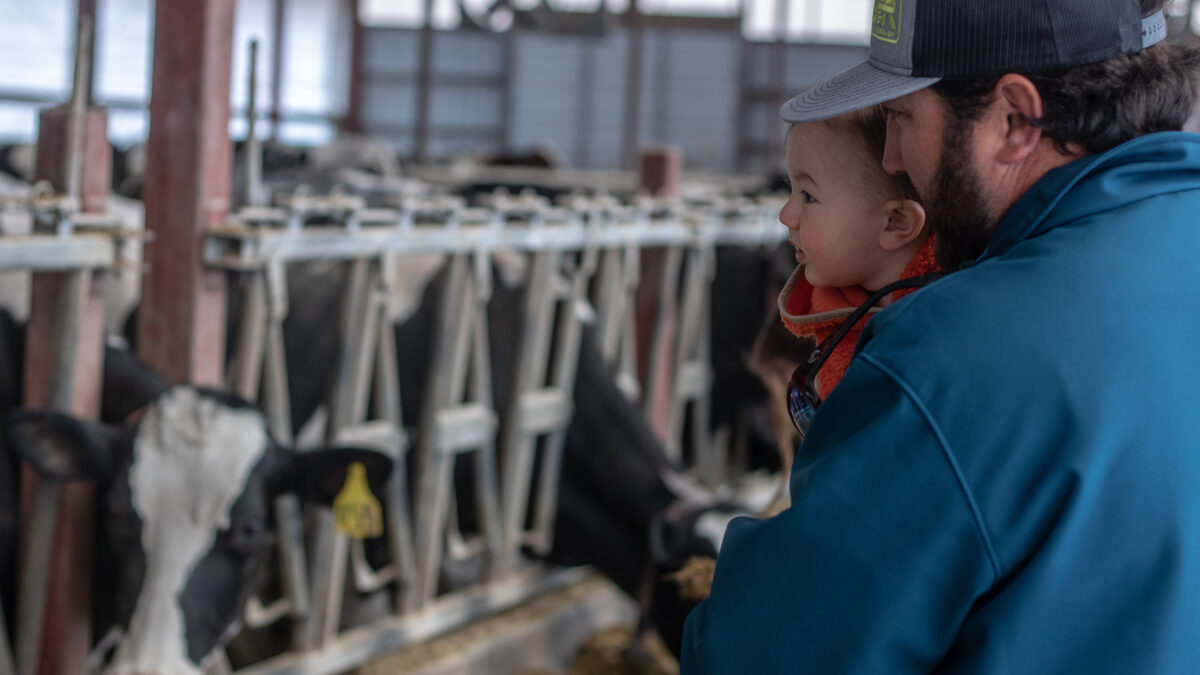How Can Farm Families Make Succession Planning Easier?
TOPICS
Young Farmers & RanchersGuest Author
Special Contributor to FB.org

photo credit: AFBF
Guest Author
Special Contributor to FB.org
By Katherine Carter
Family farms aren’t just a business. They are the family home, legacy and heart, and an unsuccessful transfer from one generation to the next risks all of that.
A former farm kid myself, I give customers the advice I wish I’d had before my family went through succession: go digital.
Nobody wants the family farm to fail. So why is it so hard to create a plan for the inevitable transition?
Without data, it’s natural to rely on emotions and opinions, and those can quickly turn sour when combined with a lack of reliable information. Digital tools can help families avoid these challenges in three primary ways
Farm logs and notebooks in the glovebox are interesting nostalgia pieces, but far from a complete picture of operations.
Digital Tools Capture Institutional Knowledge
When my family was going through succession, I quickly realized just how little I knew despite spending many hours working in the farm office and helping during harvest. I had only been privy to portions of how our overall operations were run.
Not understanding the why behind decisions creates gaps for the incoming generation, and as the holders of the “institutional knowledge,” the outgoing generation feels they can’t let go.
Farm logs and notebooks in the glovebox are interesting nostalgia pieces, but far from a complete picture of operations. Digital tools, on the other hand, record and preserve that institutional knowledge in a secure, easily accessible manner for generations to come.
Digital Tools are an Objective Way to Analyze Change
Data analysis creates an objective way to evaluate changes, an ability crucial to successful succession planning.
We can now analyze operational and financial changes more deeply than ever before, overlaying data from all aspects of the business to reveal insights that previously required more time and effort than most farmers could spend.
Armed with these insights, debates over change are no longer an argument of “the old way” versus “the new fad,” but an objective, unified look at the operation's strengths, weaknesses and potential. In the end, the result is a stronger, more viable farm.
Digital Ag Can Equal More Possibilities
One of the hardest parts of succession is figuring out how to divide the farm between heirs. With data as a guide, the family can make decisions as partners while working to create equity among farm management. Perhaps a son has traditionally handled the field decisions and a daughter has been in charge of the office, leaving her feeling out of the loop. Digital tools can enable the office to monitor market changes, organize workloads, track the budget and coordinate real-time opportunities with field-side operations.
Suddenly field and office become equally important, balancing the management dynamics and building a more profitable business that utilizes all the talents family members bring to the table.
The Sooner Your Farm Goes Digital, the Better
There’s an apt saying about trees: “The best time to plant a tree was 20 years ago. The second-best time is now.”
I feel the same way about adopting digital tools. Data science’s power is in the ability to capture information over time and discover insights using machine learning; the more information you have, the more powerful those insights are. Imagine your great-grandchildren making decisions using decades of data specific to your farm to guide them. That’s a gift.
No matter which side of the farm succession table you are sitting at — looking to let go or hoping to take over — the sooner you go digital, the better situated your family’s future will be.
Katherine Carter is VP of customer success at Granular.
Top Issues
VIEW ALL